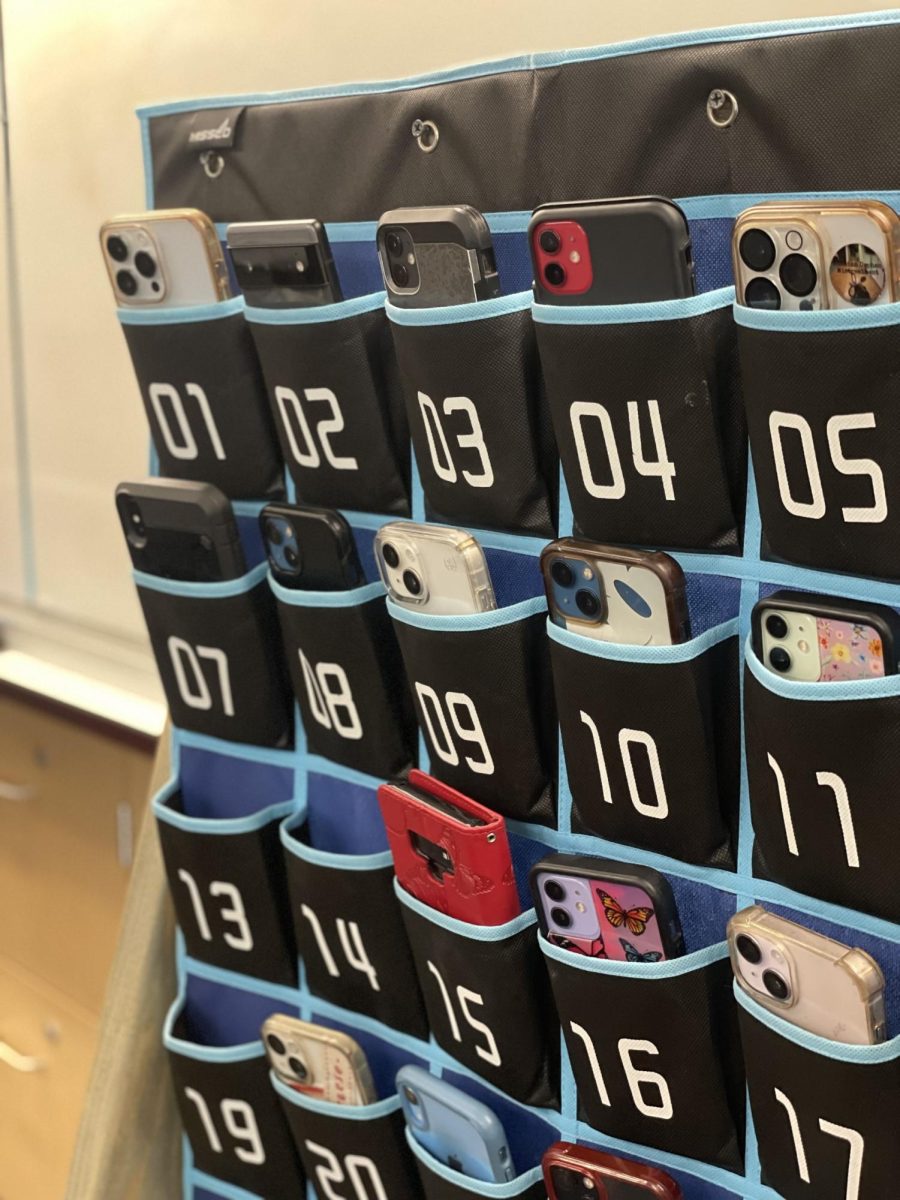Phones have been a controversial topic among teachers and administration over whether students should be allowed to have their phones during class. There are several reasons why phones should be allowed, but ultimately, phones and technology have hurt our generation, not just students. Research shows many adverse side effects of cellphone usage being a threat to students. Phones should not be used in classrooms because they can disturb learning, make it harder for students to stay engaged, and lead to cheating.
 Phones should not be allowed in classrooms because they disturb the learning environment. After all, the sounds of notifications, calls, and text messages can distract the person using the phone and their classmates. Even having a phone on a student’s desk might make them want to check it during class, taking their attention away from the teacher and what they should be learning. These interruptions can interrupt their focus and make learning harder for everyone. “Whenever I turn to check on my students, they are using their phones and not paying attention,” said Laura Larson, a teacher at Santiago. She proceeds to explain that she was never strict on phones until she realized students failed to participate in conversations with their peers during class discussions and were more occupied with their phones.
Phones should not be allowed in classrooms because they disturb the learning environment. After all, the sounds of notifications, calls, and text messages can distract the person using the phone and their classmates. Even having a phone on a student’s desk might make them want to check it during class, taking their attention away from the teacher and what they should be learning. These interruptions can interrupt their focus and make learning harder for everyone. “Whenever I turn to check on my students, they are using their phones and not paying attention,” said Laura Larson, a teacher at Santiago. She proceeds to explain that she was never strict on phones until she realized students failed to participate in conversations with their peers during class discussions and were more occupied with their phones.
Furthermore, using phones in class can make students struggle to work with others in person. They tend to like talking through screens instead of face-to-face, making communicating harder in real-life situations. If teachers discourage phone use in class, students are more likely to speak and interact with their classmates, helping them develop essential social skills for life later on.

This leads to the argument that using smartphones in class can make it difficult for students to stay focused and engaged. Instead of participating in class discussions or taking notes, students check social media, play games, or text their friends. This distraction from learning can result in a lack of understanding of the lessons, forgetting what was taught by the teacher, leading to a decline in their academic performance. In an interview with a history teacher, he explains, “I don’t see the use of having a phone during school altogether; we were able to survive back then. Why can’t we now?” -Timothy Baron. This is a true statement because although our generation is now digitalized, society back then could learn and retain the same information we know now but in different and less convenient ways, according to the Cal. Ed. Code, administrators are allowed to take personal devices as long as the students are under their supervision. Although administrators have permission to control phone use, most of the responsibility is on students according to the Corona Norco Unified School District’s personal device policy.
However, coach and teacher Michael Munoz contradicts this statement. He describes that phones are a helpful tool and can benefit learning in many ways more conveniently, but he believes that we control our cellphone usage and the phone itself isn’t the problem. This may be true; however, as a teacher, the most they can do for their students is limit their cell phone usage by taking away their devices, and since the district provides students with Chromebooks, they still have the benefits of using technology for their learning advantage but with fewer distractions and limitations.








